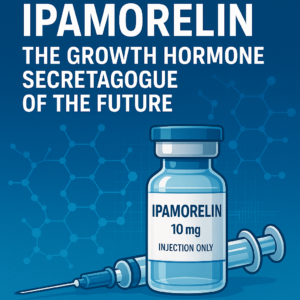Understanding Kratom: A Natural Herb with Complex Effects
Kratom, a tropical tree native to Southeast Asia, has sparked interest for its potential effects on mood and well-being. People often turn to this herb to manage pain, boost energy, or enhance mood. But how does it really affect brain chemistry, particularly serotonin and dopamine? Understanding these interactions can provide insight into its therapeutic potential and risks.
What is Kratom?
Kratom comes from the leaves of the Mitragyna speciosa tree, which grows in countries like Indonesia, Thailand, and Malaysia. Traditionally, locals used kratom leaves for centuries to combat fatigue and manage various ailments. Today, kratom has gained popularity worldwide in different forms, including powders, capsules, and extracts.
The leaves contain active compounds called alkaloids. The two most notable alkaloids are mitragynine and 7-hydroxymitragynine. These compounds interact with receptors in the brain, leading to varying effects based on the dosage and strain of kratom used.
How Kratom Affects Serotonin Levels
Serotonin plays a critical role in regulating mood, anxiety, and overall emotional well-being. Many people associate it with feelings of happiness. Research suggests that kratom may influence serotonin pathways, although the exact mechanisms remain unclear.
Initially, kratom acts on the brain’s opioid receptors, similar to how certain pain medications work. Subsequently, it may also affect serotonin receptors. Users often report an uplifted mood and a sense of well-being after consuming kratom, which indicates its ability to trigger serotonin release. However, it’s essential to note that overly high doses can lead to negative effects, such as agitation and anxiety.
Potential Benefits
- Mood Enhancement: Many users report feeling happier and more positive after kratom consumption.
- Anxiety Reduction: Some people find that kratom helps ease anxiety and stress, promoting relaxation.
- Increased Motivation: Kratom may enhance focus and energy, contributing positively to daily tasks.
How Kratom Influences Dopamine Production
Dopamine, often referred to as the “feel-good” neurotransmitter, plays a crucial role in reward, motivation, and pleasure. It significantly impacts our mood and emotional state. While kratom primarily interacts with opioid receptors, there’s evidence suggesting it also influences dopamine levels.
When you consume kratom, certain alkaloids may increase dopamine release. This effect can lead to feelings of euphoria and increased motivation. Some users describe this experience as similar to the positive effects associated with traditional stimulants but without the jittery side effects.
Notable Effects
- Euphoria: Low to moderate doses may produce feelings of happiness and contentment.
- Increased Ambition: Higher dopamine levels can encourage users to pursue tasks with vigor and enthusiasm.
- Potential for Dependence: While many enjoy the uplifting effects, the risk of developing a dependence on kratom exists. It’s essential to use it responsibly.
The Dance Between Serotonin and Dopamine
The relationship between serotonin and dopamine is intricate. These neurotransmitters often work in tandem to regulate mood and behavior. For example, an uptick in dopamine may accompany a rise in serotonin levels. This balancing act can influence how one feels overall.
Kratom’s impact on these neurotransmitters may explain its dual effects—euphoria and relaxation. Users may feel both energized and calm simultaneously. However, it’s crucial to recognize that while kratom can induce positive feelings, it may also lead to parity between these chemicals being disrupted, especially with misuse.
Duration of Effects: How Long Do They Last?
Understanding the duration of kratom’s effects can help users manage their use more effectively. Generally, the effects last about 2-5 hours, depending on the strain, dosage, and individual metabolism. Different strains, such as red, green, and white, have varying effects and durations.
- Red Strain: Often used for relaxation and pain relief. Effects can last longer, typically up to five hours.
- Green Strain: Balances energy and calmness. Effects typically last around three hours.
- White Strain: Increases energy and focus. Often lasts about two to four hours.
Being informed about the duration and type of kratom can help you choose the right strain for your needs.
The Risks and Caveats of Kratom Use
While many people enjoy kratom for its benefits, users should be aware of potential risks. Excessive use can lead to adverse effects, including dependence, withdrawal symptoms, or even negative psychological effects. It’s helpful to understand what can arise from improper use of this herb.
- Addiction Potential: As a substance that affects pleasure centers in the brain, kratom may lead to dependence.
- Side Effects: Users may experience nausea, constipation, dizziness, or changes in mood with high doses.
- Interaction with Medications: If you take other medications or have pre-existing conditions, consult a healthcare professional before using kratom.
Responsible Usage Guidelines for Kratom
To maximize the benefits of kratom while minimizing risks, it’s essential to use it responsibly. Here are some guidelines to consider:
- Start Slow: Begin with a low dose to see how your body reacts. Gradually increase the dose if needed, but avoid excessive amounts.
- Stay Educated: Keep up with the latest research and guidelines regarding the use of kratom. Knowledge is power.
- Know Your Source: Ensure you’re purchasing high-quality kratom from reputable suppliers to avoid contaminated or adulterated products.
- Listen to Your Body: Pay attention to how kratom affects your mood and behavior. If you experience negative effects, consider discontinuing use.
Balancing Natural Alternatives and Conventional Medicine
Many people search for natural alternatives to synthetic medications. While kratom offers benefits for mood and well-being, it’s not a replacement for professional medical treatment. Always consult a healthcare provider if you’re considering using kratom as part of a treatment plan.
Conclusion: The Final Thoughts on Kratom’s Effects on Serotonin and Dopamine
Kratom is both fascinating and complex, particularly concerning its interaction with serotonin and dopamine. While it offers potential benefits, it also carries risks that users must consider. Understanding how this herb influences brain chemistry can help individuals make informed decisions about its use.
Many people have found kratom to be a valuable addition to their wellness routine, while others have encountered negative effects. The key is finding a balance and using it mindfully.
FAQs
1. Can kratom help with depression?
Kratom may provide temporary relief from depressive symptoms, primarily by influencing serotonin levels. However, it’s not a substitute for professional treatment.
2. How does kratom compare to traditional antidepressants?
While both can affect mood, kratom interacts with opioid receptors, whereas antidepressants mainly target serotonin and norepinephrine.
3. What dosage is safe for beginners?
Starting with 1-2 grams is generally recommended for those new to kratom. Gradually adjust based on individual response.
4. Is kratom legal everywhere?
No, the legality of kratom varies by region. Always check local laws before purchasing and using kratom.
5. Can I use kratom alongside other medications?
Always consult a healthcare professional before mixing kratom with other medications, as interactions can occur.
6. Are there any long-term effects of kratom use?
Research on long-term effects is limited. However, there is potential for dependence and withdrawal symptoms with regular use.
7. Is kratom addictive?
Kratom can lead to psychological dependence, especially with consistent high doses. Use it responsibly to minimize risks.
8. What are the side effects of kratom?
Common side effects include nausea, dizziness, constipation, and mood swings, especially at high doses.
9. How should I store kratom?
Keep kratom in a cool, dry place, away from sunlight and moisture to maintain its potency and freshness.
10. Can kratom improve focus?
Some users report enhanced focus and motivation, especially with certain strains like white kratom. Individual responses can vary.







